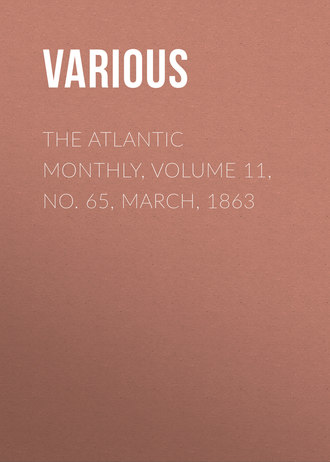The Atlantic Monthly, Volume 11, No. 65, March, 1863
 полная версия
полная версияThe Atlantic Monthly, Volume 11, No. 65, March, 1863
Жанр: учебная и научная литературазарубежная старинная литературазарубежная образовательная литературазнания и навыки
Язык: Английский
Год издания: 2018
Добавлена:
Настройки чтения
Размер шрифта
Высота строк
Поля









